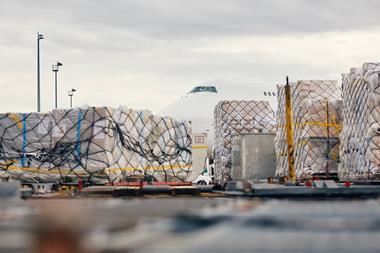
Credit: one photo/ Shutterstock
The US has temporarily reversed its decision to block the de minimis exemption that allowed packages worth less than $800 to be imported into the country duty-free.
A statement from the White House said that the exemption would be reinstated while systems are put in place to process the millions of de minimis - or section 321 - packages that US customs processes each day.
In a statement issued last week, the White House said the exemption shall “cease to be available for such articles upon notification by the Secretary of Commerce to the President that adequate systems are in place to fully and expediently process and collect tariff revenue”.
The removal of the de minimis exemption was part of a wider decision to implement tariffs of 10% on goods from China and seemed to have caught the parcel and package sector unprepared.
Shortly after the de minimis exemption was removed, the US Postal Service (USPS) suspended the handling of packages from both China and Hong Kong.
This suspension was later overturned with USPS saying it was working with Customs and Border Protection (CBP) to implement an efficient collection mechanism for the new China tariffs to ensure the least disruption to package delivery.
CBP is faced with the prospect of having to collect duty and information on the packages it processes from China and Hong Kong. CBP processes an average of 4m de minimis packages per day, most of them from China.
The number of de minimis shipments coming into the US has risen rapidly in recent years with the rise of e-commerce players such as Temu and Shein, which are thought to be responsible for around 30% of e-commerce heading into the US.
At present, it is unclear how long it will take for CBP to put in place the systems required to process that many packages.
The growth of e-commerce has helped fuel demand in air cargo over the last few years and has helped keep aircraft utilisation on main trades at a high level.
The air cargo industry has been digesting the potential impact of the removal of the exemption over recent weeks.
While some are concerned it could have a large impact pushing up the price of items and slowing down the delivery process, others have suggested the effects could be more limited.
At the recent World Cargo Summit, Swissport’s vice president for e-commerce Nikolia Schaffner said the average value of an e-commerce package is between $15 and $18 meaning even a tax of 20% is absorbable.
Temu and Shein have also in the past said they are prepared for any changes to the de minimis exemption.
Meanwhile, Xeneta chief airfreight officer Niall van de Wouw said that e-commerce volumes out of China had grown by between 20%-30% over each of the last couple of years reflecting consumer demand for cheap-fast goods.
He pointed out that even with the need to pay duties, goods are still likely to be cheaper than buying them from retail stores.
Delays caused by the need to process millions of parcels could be more of an issue for consumers than the extra cost, he said.
And last week DSV chief executive Jens Lund said he believed the platforms would be able to maintain their cost advantage over retailers.
He added that there is also the possibility that manufacturers will move out of China to other jurisdictions where they can still benefit from the exemption.

















